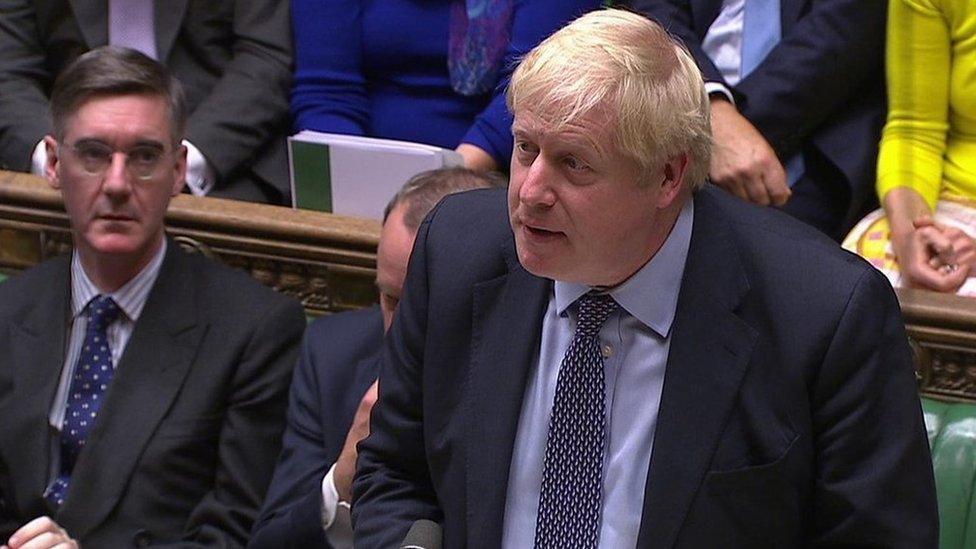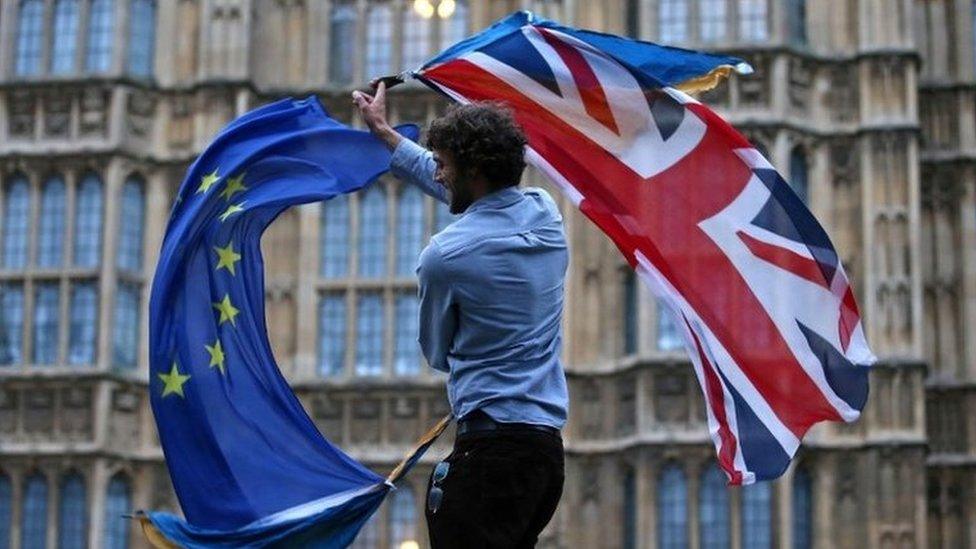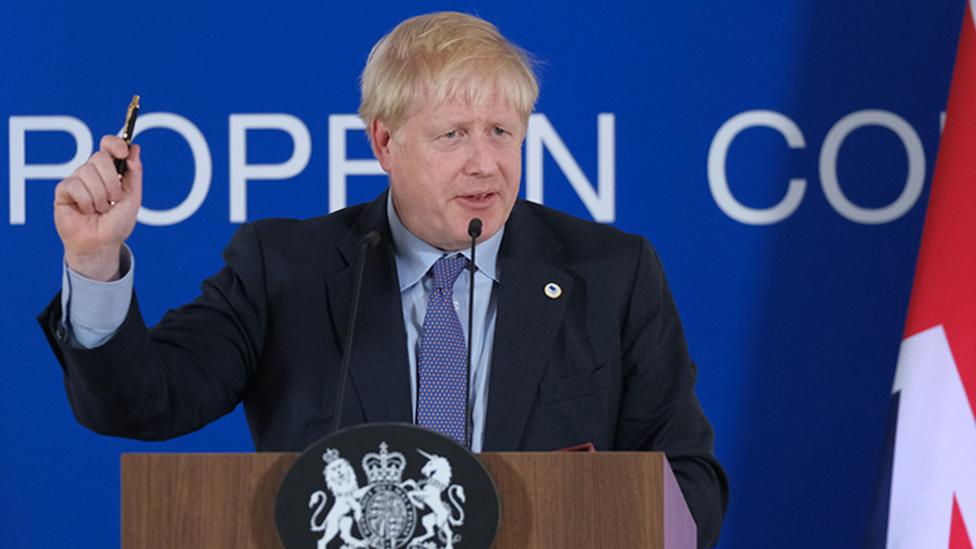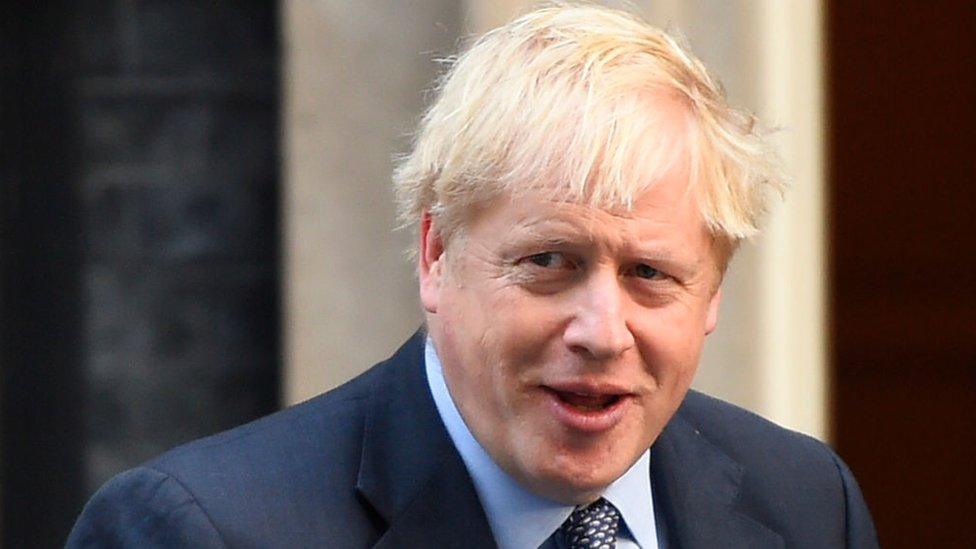Brexit: What next for the prime minister?
- Published

Mr Johnson has formally requested a Brexit extension to 31 January
The prime minister, Boris Johnson, is neither dead nor in a ditch.
Even though he said that would be (metaphorically) preferable to asking the EU for more time for Brexit.
He has now formally requested an extension to 31 January as he was legally obliged to do under the Benn Act.
Yes, he's also written another letter making clear he doesn't really want a delay. But the EU is now considering his application to extend.
It won't be keen and it could refuse but that is widely regarded as unlikely.
So, despite all his protestations, Boris Johnson has complied with the key provision of the Benn Act.
But the Court of Session in Edinburgh will still be asked to review his behaviour.
No guidance
Because the Act also requires the prime minister not to frustrate his own request and some argue that he is trying to do just that.
The prime minister has been found to have acted unlawfully before, in proroguing parliament.
But that case offers no guidance as to how judges in Edinburgh will rule on this matter.
Meanwhile, the government has not given up on taking the UK out of the EU on 31 October. Far from it.
Ministers are trying again on Monday to put the revised Brexit deal to a vote in the Commons.
That request could be rejected by the speaker, John Bercow, on the basis that the government already had a go on Saturday.

If so, there's expected to be another test of parliamentary opinion on Tuesday when the government brings forward the law needed to prepare for EU withdrawal.
Boris Johnson is getting very close to securing the numbers needed to endorse his deal and pass that legislation.
But as always with Brexit, it won't be straightforward.
Opposition MPs will use the opportunity to try to change the government's plan.
There's likely to be an amendment to keep the UK in the EU customs union and another seeking a referendum on the Brexit deal.
It's not clear that either of these will pass.
But the point is, the government does not have a built-in majority in the Commons, so it cannot be sure of winning any vote.
It may not, for example, be able to get approval for its law-making plans for the coming year, as set out in the Queen's Speech.
That's why - sooner or later - there will have to be a general election.
That would have to be called this week if it's going to happen in November.
But, once again, that requires the backing of MPs and the opposition have been blocking an election until Brexit's delayed.
Trading relationship
A delay would put off the possibility of a no-deal departure from the EU. But it would not resolve the Brexit crisis.
Ministers say the only way to do that is to vote for the deal.
But that only gets the UK to the next phase of negotiations with the EU about its future trading relationship.
That's to be negotiated during a 14-month transition period until the end of 2020.
If that deal can't be done in time, there would be the possibility of further delay or leaving without a deal.
Circumstances that Brexit has already made all too familiar.
- Published21 October 2019

- Published20 October 2019
